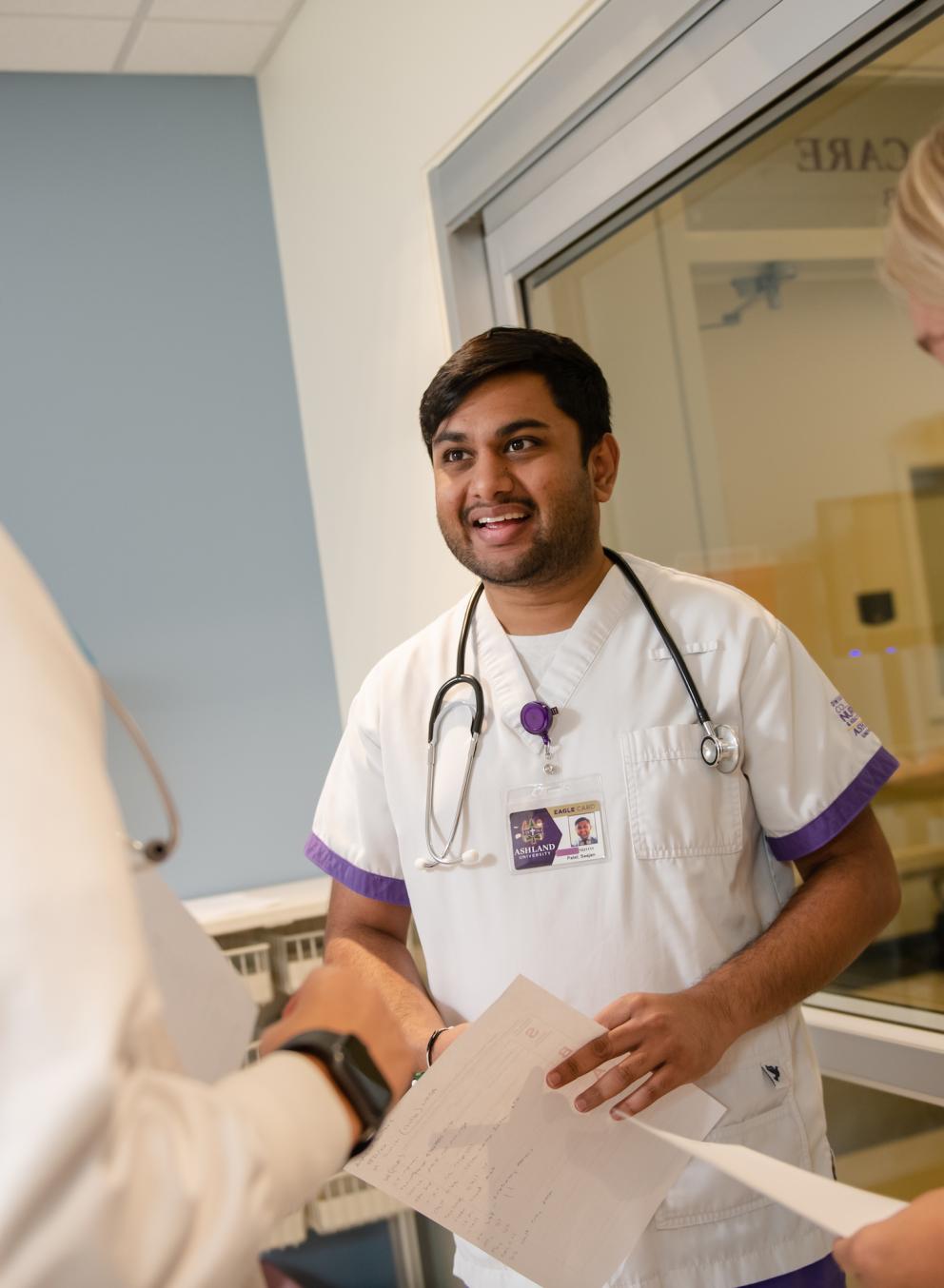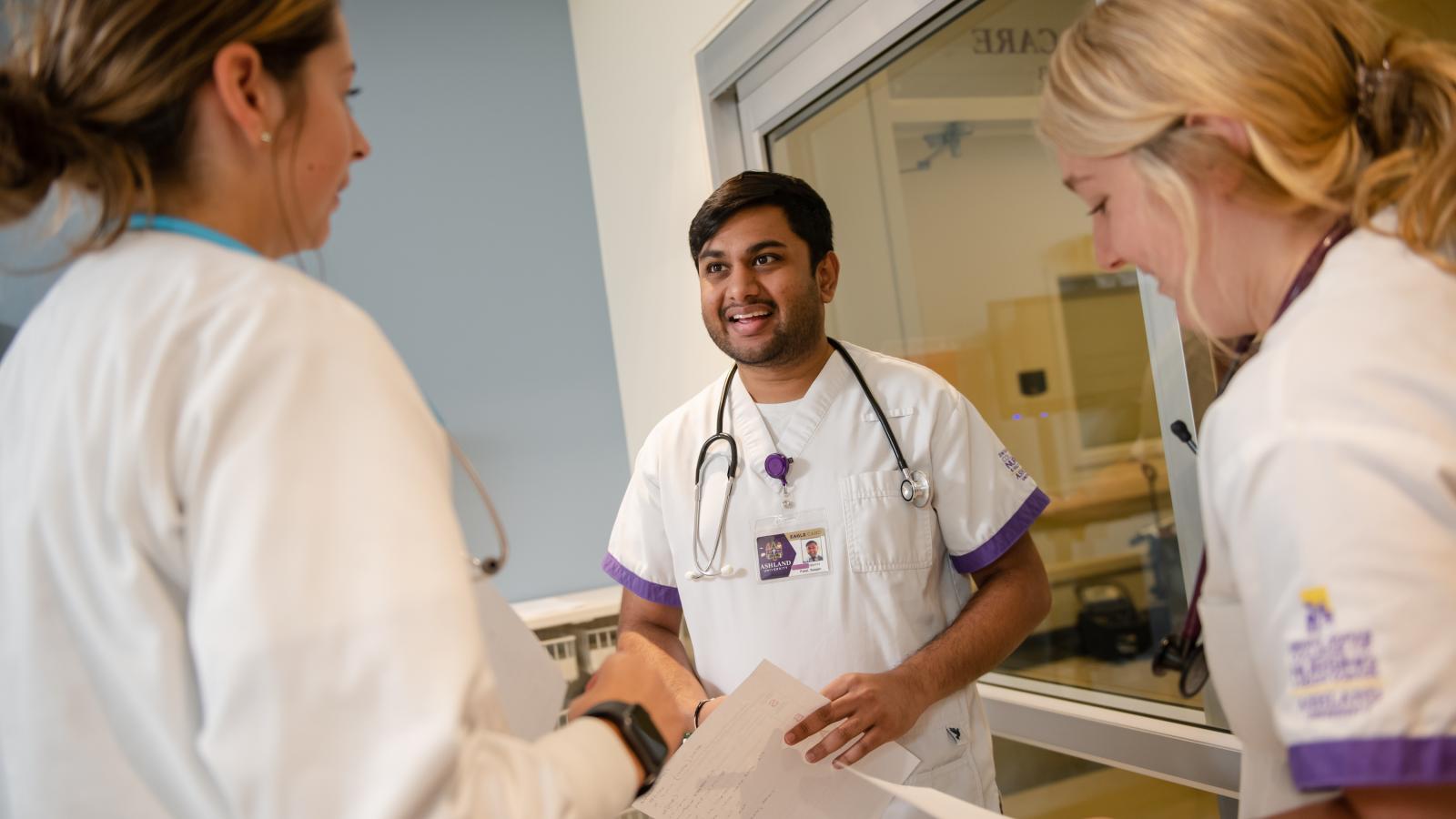Advanced Entry BSN Program Overview
Are you an ambitious high school student who is looking to get a head start on your nursing journey?
If you’ve already earned college transfer credit or participated in College Credit Plus, our Advanced Entry Nursing program gives you the opportunity to complete freshman-, sophomore- and first semester junior-level nursing coursework in a fast-paced format.
Apply early! The program starts in the fall, is very competitive and fills up quickly. Only applicants who complete the necessary application requirements on or before the application deadline will be considered for admission.
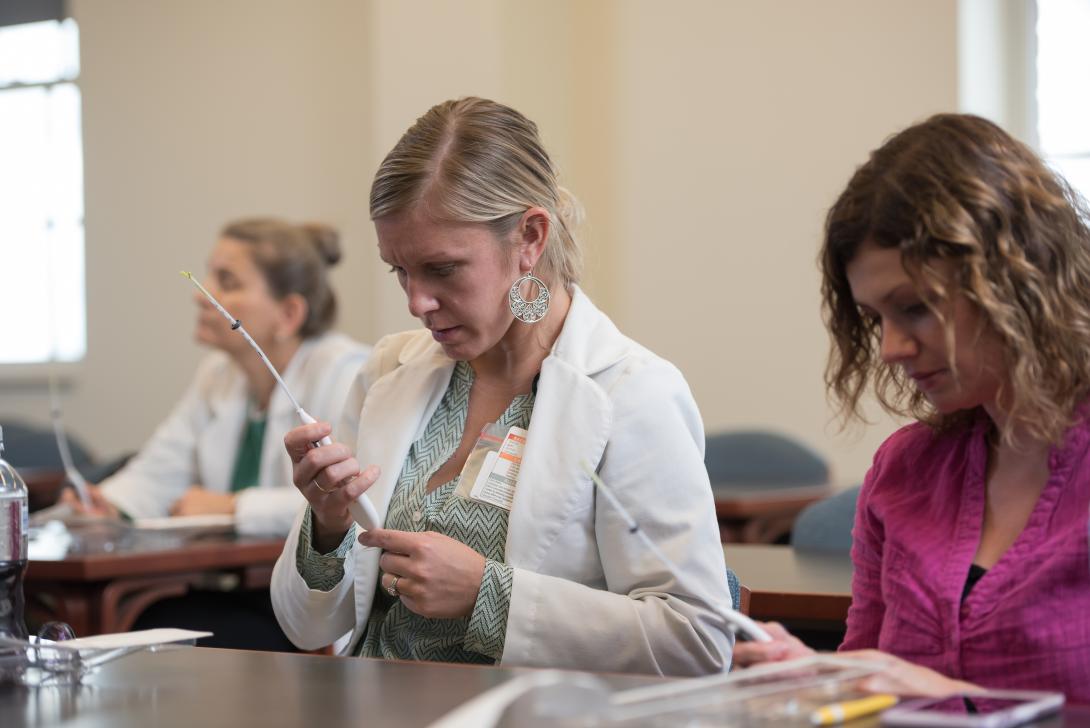
Program Benefits
- Interactive simulations at Ashland University’s state-of-the-art Simulation Center
- Direct entry program with no further application required for the clinical coursework
- 1:8 clinical instructor-to-student ratio
- Complete the BSN program in four semesters (15 months)
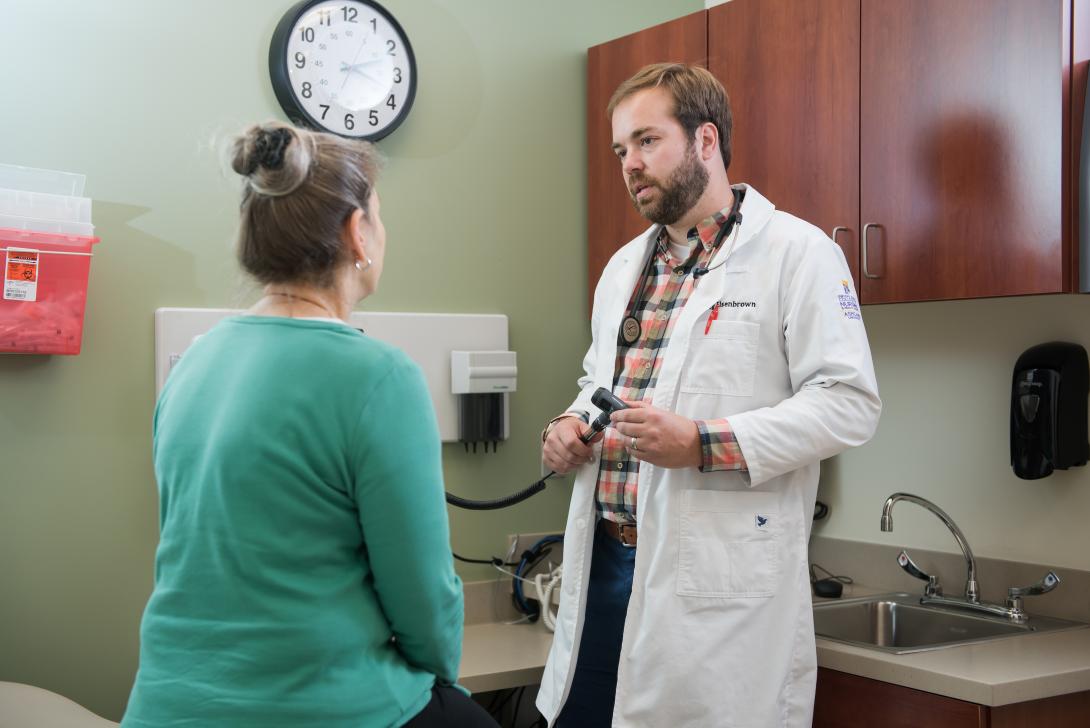
How Do I Know if This Program Is Right for Me?
The Advanced Entry program at Ashland University offers a tailored pathway for students with college transfer credits or College Credit Plus experience who aspire to pursue a nursing career. This program is ideal for individuals who have completed prerequisite coursework from accredited institutions, including courses such as:
- Developmental Psychology
- Nutrition
- Microbiology with laboratory
- Organic/Inorganic/Biochemistry with laboratory
- Human Anatomy and Physiology I & II with laboratory
- Ethics
- Statistics
- English Composition I and II
If you have a strong academic background and are committed to meeting the rigorous demands of nursing education, this program provides an efficient route to entry into the nursing profession.

Learning Experiences
Upon completion of the program, you will be able to:
- Synthesize knowledge from nursing and a liberal arts education as the basis for clinical judgment, reflective practice and decision making.
- Incorporate professional standards in the practice of nursing.
- Value integrity, caring, accountability, respect and excellence in nursing practice.
- Collaborate with patients and health professionals to develop and implement culturally appropriate health promotion, disease prevention and illness care methods.
- Select current theory and evidenced-based knowledge to guide and teach individuals, families and populations about health promotion and illness prevention.
- Employ patient care technologies, information systems and communication devices that support safe nursing practice and development of nursing knowledge.
- Demonstrate knowledge of healthcare policy, finance and regulatory environments that impact patient care.
- Incorporate effective communication and collaboration skills, forming partnerships to provide care and promote positive outcomes to a diverse society in a global context.
- Apply leadership concepts, principles of advocacy and decision making in the provision of quality patient care, healthcare team coordination and accountability for care delivery in a variety of settings.
- Collaborate with healthcare professionals to enhance quality improvement and safety initiatives at individual and system levels of care.
- Investigate health-related social justice concerns within legal, ethical and political contexts.
- Value lifelong learning for personal and professional growth to support excellence in nursing practice.
Curriculum
Accelerated Nursing takes place over four consecutive semesters so you can finish in only 15 months. Learn more about the Nursing Accelerated curriculum by viewing the Academic Catalog.
Admission Requirements
Applicants must have:
- Attended an accredited college or university.
- At least a 2.9 (on a 4.0 scale) cumulative grade point average in college coursework.
- A science prerequisite coursework cumulative grade point average of 2.5 on a 4.0 scale prior to the start of the Advanced Entry program.
- Completed the following prerequisite courses from an accredited college or university with a minimum letter grade of "C" (science prerequisite coursework must have been completed within 10 years prior to the program start date).
- Developmental Psychology
- Nutrition
- Microbiology-must include a laboratory
- Organic/Inorganic/Biochemistry - must include a lab
- Human Anatomy and Physiology I & II - must include a lab
- Ethics
- Statistics (does not have to be equivalent to Ashland University’s Statistics course)
- English Composition I and II
- Successfully completed all required core courses prior to the start of the Advanced Entry program.
- Submitted an application for admission to Ashland University.
- Met all other requirements of the traditional 4-year program.
- Pass a criminal background check and drug screen prior to entering clinical coursework.
- Meet the health status criteria for mental and physical health.
- Provide documentation of ability to perform the essential functions for clinical course work.
- Complete a record of required immunizations.
Graduate Outcomes
Graduates are well-prepared for the workforce:
- Ashland’s Traditional BSN program has had a National Council Licensure Examination (NCLEX-RN® exam) pass rate of 89 percent or higher in the last five years, scoring higher than the state and national averages in 2021.
- Ashland University BSN: 89.17 percent
- Ohio: 79.07 percent
- National: 86.06 percent
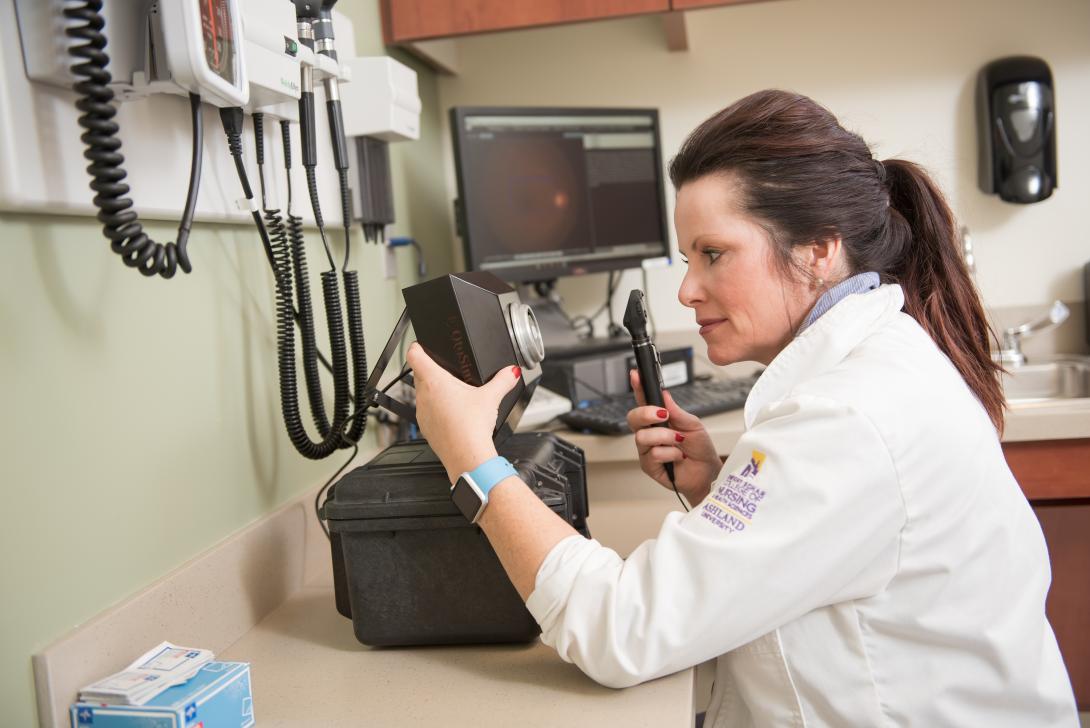
Can You Give Me a Glimpse of My Future?
Your BSN credential will position you for advancement into roles such as nurse manager, clinical coordinator or specialty nurse practitioner, where you can take on leadership responsibilities, contribute to evidence-based practice and positively influence healthcare outcomes. Additionally, having a BSN may lead to increased earning potential and job security, while also providing a strong foundation for pursuing further education at the graduate level if desired.
